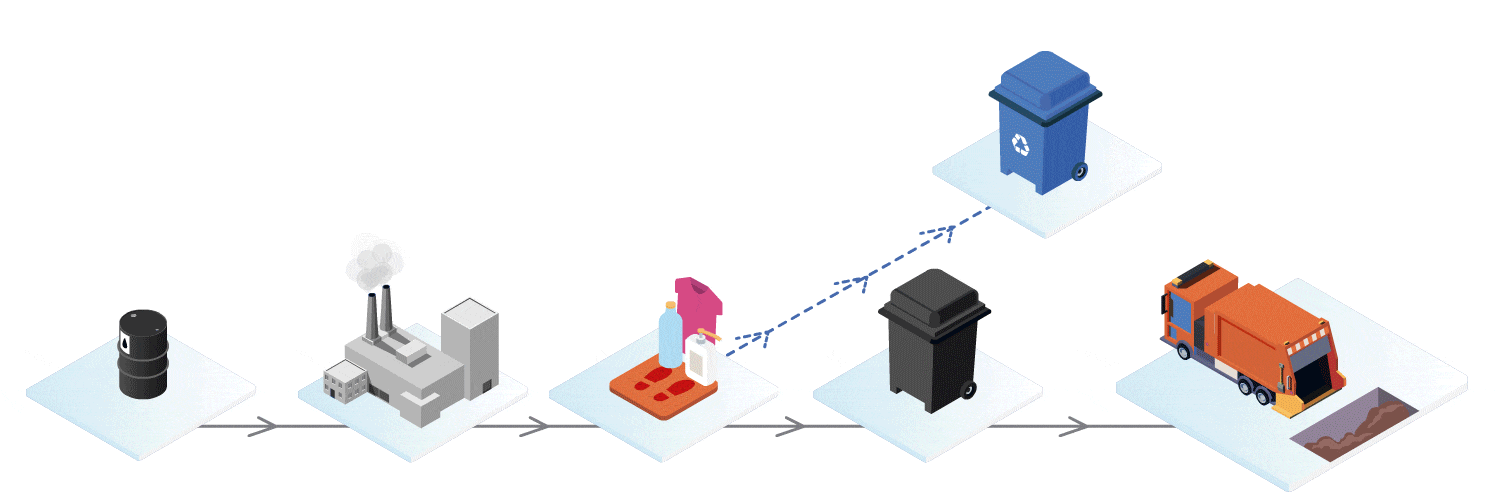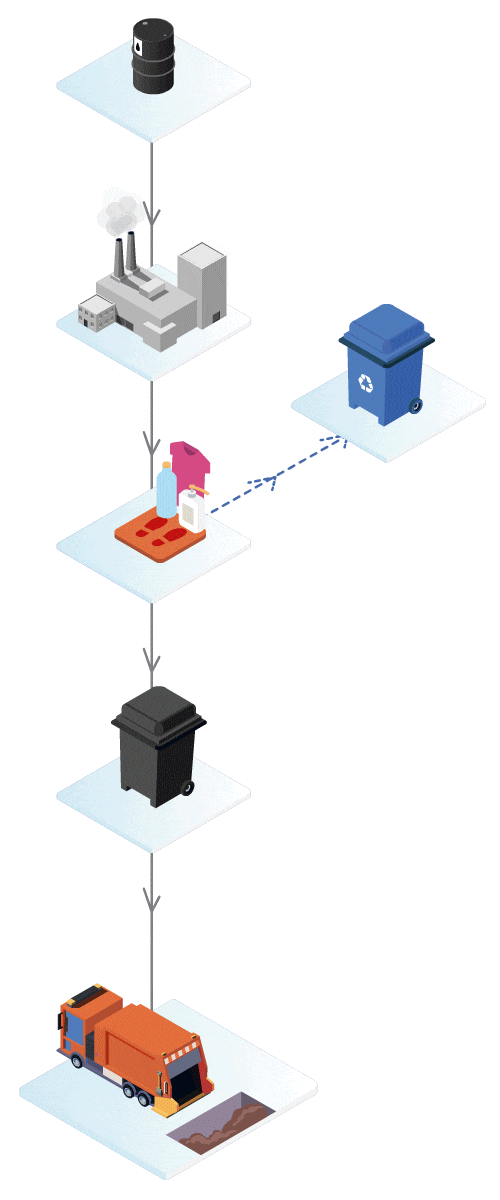



Today, the majority of plastic packaging material value (USD 80–120 billion annually), is lost to the economy after one single use*. The plastics that don’t immediately end up in landfills are mostly downcycled into low-value applications — and cannot be recycled several times. For example, a high-value water bottle may get recycled into textile fibers, which currently have no sustainable re-use.
But while most of us know that plastic packaging is a high polluter, less attention has been paid to the impact of the textile space in general, and polyester fiber specifically, which makes up 52% of global fiber production.**
Roughly 85% of textiles are never recycled, accounting for some 11.3 million tons of waste in the U.S. alone in 2018.***


*Source: Ellen MacArthur Foundation New Plastics Economy
** Source: Textile Exchange Preferred Fiber and Material Market Report 2020
*** Source: United States Environmental Protection Agency
The low and no-value waste that normally ends up in landfills and oceans now can be upcycled into high-purity, virgin-quality PET plastic and polyester fiber.
Because our technology removes dyes, additives, contaminants, as well as other plastics, Loop can handle ALL types of PET plastic and polyester fiber waste, even those that others consider to be unrecyclable.
Plastic Water
Bottle
Colored Plastic
Container
Opaque Plastic
Container
Polyester
Fibers
This is a win for waste management companies, for major consumer brands and more importantly, for our planet.
We want to hear from you!